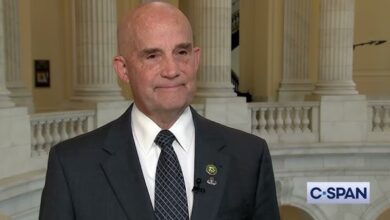Saudi Arabia continues to deter extremism with the newest effort targeting school curricula.
The country’s Education Ministry recently announced the introduction of a new curriculum for the kingdom’s schools, which involves, among other changes, a reduction of hours devoted to religious studies. As part of the reform, Qur’an and Islamic studies have been merged into a single subject and the number of classes devoted to these two topics has been reduced from 34 to 15 weekly classes in middle school and from 38 to 30 weekly classes in primary school.
In addition, a new subject, financial education, will be introduced in high school. Further changes in the curriculum have not year been made public, but the online London-based daily Raialyoum.com reported that the hours devoted to math, science, English and language will be increased.
Pro-democracy intellectual Turki Al-Hamad, who is regarded as close to Saudi Crown Prince Muhammad bin Salman, was quick to tweet his approval of the reform, calling it “a correct decision.” Several Saudi journalists praised the reform as well, calling it a brave decision that has long been necessary and which will help cultivate a new generation that will advance the country and the Saudi economy.

It should be noted that bin Salman has placed emphasis on religious reform, calling it a necessary condition for preparing the kingdom for the challenges of the modern age. In an interview he gave in May 2021 to several Saudi television channels, marking the fifth anniversary of Saudi Arabia’s Vision 2030, he said that it is always possible to apply independent reasoning (ijtihad) in interpreting the Islamic shari’a.
As part of the Vision 2030 campaign, bin Salman has pushed the country forward in terms of women’s rights, including the right to vote and driving, as well as other reforms seen as bringing the country more in line with democratic principles. His ambitious reform program also aims to change everything from how people live and work to how they access health care and interact with the government.
But he is also not without controversy in the West. He has been accused by the Biden administration of giving the green light for the murder of Jamal Khashoggi who was killed inside the Saudi consulate in Istanbul in 2018. Khashoggi was a columnist and member of the radical Muslim Brotherhood.
Despite the allegations, bin Salman has pushed forward with social reforms and increasing security and economic ties with Israel. He also mandated the removal of all anti-Israel and anti-Semitic material from school textbooks.
This report reviews the details announced by the Saudi Education Ministry about the educational reform, and the reactions of several intellectuals and journalists to it.
Saudi Education Ministry: The New Curriculum Includes Fewer Religion Classes
Reporting on the educational reform, the English-language daily Saudi Gazette wrote on August 23, 2022: “The [Education] Ministry stated that it has stopped working with the guide of previous study plans, which was issued in the last academic year, and started working in accordance with the new guide for the current year of 1444 AH [2022]. The Ministry has issued directives in this regard to all public education schools, kindergartens, schools for memorizing the Holy Qur’an, schools of special education and continuing education, scientific institutes, religious institutes in Makkah and Madinah, and national identity programs in international schools.

“According to the new guide, the subjects of Islamic studies and the Holy Qur’an in the elementary and intermediate schools will be combined into one subject under the name of the Holy Qur’an and Islamic Studies. The total classes of the subject have been reduced from 34 weekly classes in the intermediate level to 15 classes while the number of classes in the elementary level [was] reduced from 38 classes to 30 classes. The subject of financial knowledge that was approved in the first year of secondary [school]…
“There have been no other significant changes in the study plans except [an] increase in the weekly study hours of some subjects and decrease of study hours of some other subjects.”
The online daily Raialyoum.com reported the same day that, as part of the reform, more hours will be devoted to the subjects of mathematics, science, English and Arabic. It added that “this decision is in line with Saudi Crown Prince Muhammad bin Salman’s Vision 2030 and his commitment to combating the extremists… It appears that [the reform] was carefully considered, and aims to cultivate generations of Saudis who will be less extremist.”
Saudi journalist and author Nora Shanar wrote in her column on the moderate Saudi website Elpah.com: “Education has gone through several stages before developing the teaching methods and the academic subjects that exist today. The [Saudi] kingdom is interested in education, since it is an important element of its Vision 2030… The graduates of the education [system] are the ones who will advance our economy, thanks to the cultivation of human capital specializing in various fields…








